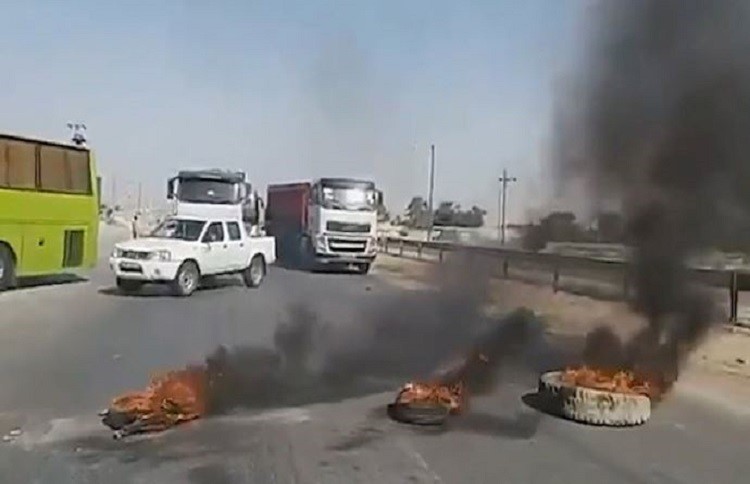
By Pooya Stone
Following the protests of the oppressed and poor people of Gheyzanieh in Ahvaz to the water lack and the rise of popular anger and hatred because of the brutal repression of the people’s protests on this subject, government officials and state media confess about the suffering and the anger of the people and express their fears about the possibility of the expansion of the protests.
The state-run daily Resalat wrote on 26 May: “Why did we bring the knife to people’s bones again? The mismanagement and thirst for water are so critical and sad that it forces the people of Gheyzanieh to protest. When the root of the family’s livelihood is weak, only one excuse is needed, then like a flame of a match that falls into a straw warehouse, it ends everything within.”
A state media reporter also said: “A large consignment of gasoline had arrived in Venezuela without firing a single shot, but in Gheyzanieh they said they had no water, they (the regime) responded with bullets.”
To calm down the situation, Iran’s supreme leader Ali Khamenei sent his Friday prayers leader of Ahvaz to visit those who were shot and brutally repressed by the regime’s forces.
In a video published by the semiofficial Fars news agency on May 25, Seyed Abdolnabi Mousavifard is seen in the home of a young man who had one leg badly injured by plastic bullets during the rally two days earlier. “I’m here to apologize to this young man,” Mousavifard is seen saying in the video.
President Hassan Rouhani sent a directive to the Minister of Energy and Governor of Khuzestan stating, “Necessary measures should be taken as soon as possible by the relevant departments to solve this problem” and “Necessary measures to provide drinking water in the summer” must happen. The Governor claimed that in two weeks the issue of Gheyzanieh’s water will be solved.
He said: “On 1 May, I promised the people that in 45 days we would send water to them, God willing. Now, almost 25 days have passed (Moderator: In 20 days, the people of Gheyzanieh will have water?), we have another 20 days, but God willing, we will deliver the water to Gheyzanieh in the next two weeks.”
The governor’s claim comes as government media acknowledged the regime’s inaction and its empty promises made by officials, including the governor of Khuzestan, who had promised to solve the region’s water network problem within three months. Residents say why, three years after the promise, the people of the area are still thirsty.
People were willing to buy water at several times the price so that their livestock would not be wasted, but they did not even bring water to the area by tanker.
The head of the council of Nazha village and a member of the council of Gheyzaniyeh district also said: “The population of the region is about 30,000. These people live near the provincial capital and the oil region, which includes many petrochemical refineries. There are 750 active oil wells in the region, but the people of the region are thirsty for lack of credit. Do the people of the Gheyzaniyeh region have any share of the 750 active oil wells in their area? How is it that now 11 billion tomans of money are paid out of ceremonies to equip the province’s water office, but there is no credit for supplying water to 85 villages? If there is no credit for providing the Gheyzaniyeh water network, where does the money for the construction of all these luxury and garden buildings 100 km from the village come from? (Iran daily, 26 May)
Mohsen Rezaee, the secretary of the Expediency Discernment Council, confessed that “Five hundred thousand barrels of oil are produced daily from the Gheyzaniyeh region, but the people of that region do not have drinking water.”
Read More:
Poor Families Sell Babies in Iran While the Government Spends $30 Billion to Syria


